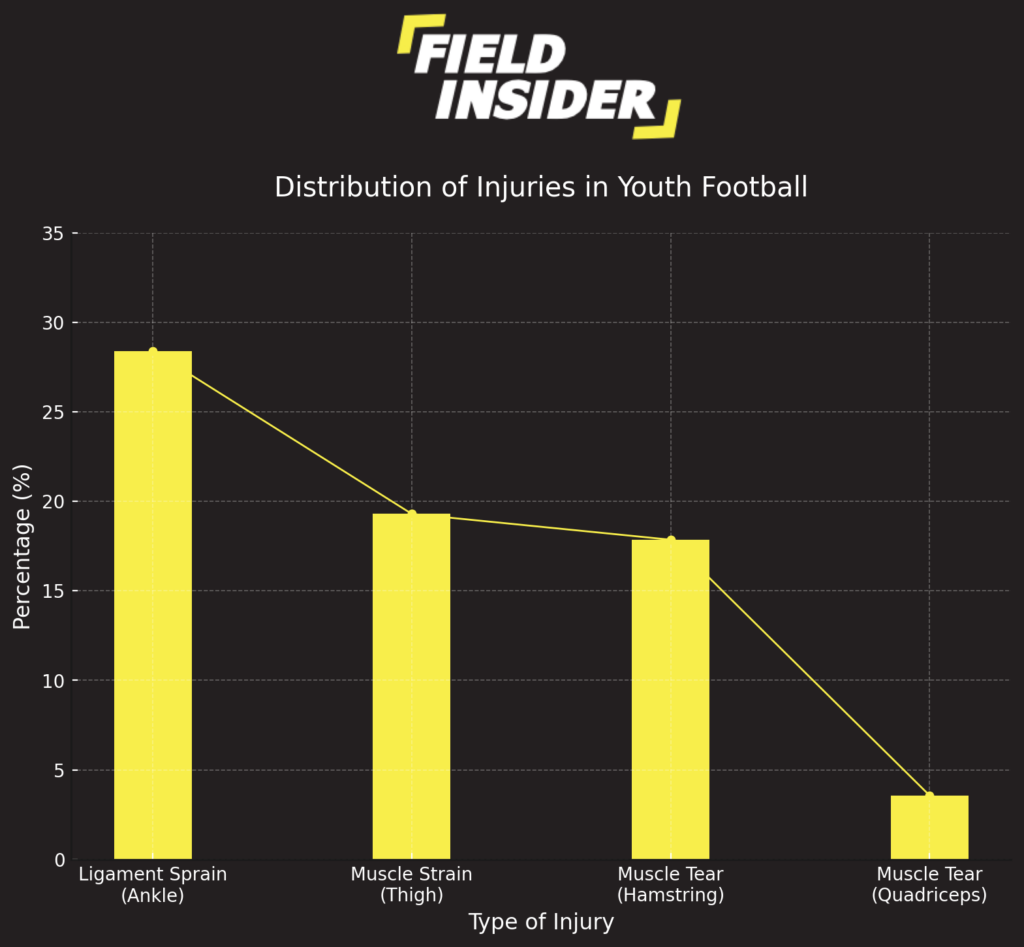Why Is Youth Football So Important? Deep Dive
Youth football stands as a vital pillar in the world of sports, serving a key role in developing future football stars. Beyond this, it has a comprehensive impact on the growth and development of young individuals, shaping them both on and off the field.
As we delve into this exploration, our aim is to provide a balanced and insightful perspective on why youth football is so much more than just a game. This article aims to shed light on these multifaceted benefits, addressing the joys and challenges of youth football.
Key Takeaways
| Key Takeaway | Description |
|---|---|
| Foundation of Skills | Youth football is essential for developing basic football skills and understanding, introducing young players to tactical formations like 4-3-3 and 4-4-2. |
| Character and Teamwork | It fosters values like discipline, sportsmanship, and teamwork, as outlined in teamwork in youth soccer. |
| Physical and Mental Health | Offers significant physical fitness benefits and enhances mental well-being. |
| Nurturing Talent | Acts as a talent pool for future football stars, with a focus on scouting and development strategies as seen in how to attract football scouts. |
| Passion for Football | Encourages a lifelong love for the game, with personal stories highlighted in football for kids. |
| Concerns and Controversies | Addresses risks and potential drawbacks, offering solutions for a safe football experience. |
The Foundation of Football Skills

Developing Basic Football Skills
Youth football is the cornerstone for developing basic football skills. In these early years, children are introduced to fundamental techniques, such as dribbling, passing, and shooting.
This stage is critical as it lays the groundwork for more complex skills and strategies.
Understanding Tactical Formations
Understanding tactical formations is another crucial aspect taught in youth football. Young players learn about different formations such as the 4-3-3 and their strategic implications on the field.
This early exposure not only enhances their tactical knowledge but also prepares them for various playing styles and positions. It’s similar to a chess game, where knowing the strengths and weaknesses of each piece can be the key to victory.
Building Character and Teamwork
Instilling Values like Discipline and Sportsmanship
Youth football is more than just a game; it’s a fertile ground for instilling life-long values such as discipline and sportsmanship. These early experiences teach young players about respect, both for themselves and others.
Emphasizing discipline, much like maintaining formation in a 4-3-3 setup, teaches children the value of structured teamwork and personal responsibility.
Teamwork and Cohesion
The essence of youth football lies in its ability to foster teamwork and cohesion among young players. Learning to work together towards a common goal is a fundamental lesson that transcends the sport.
This concept is vividly brought to life in team structures like teamwork in youth soccer, where each player’s contribution is integral to the team’s overall success. Such an environment nurtures not just football skills but also social interaction and collective problem-solving abilities.
Physical and Mental Health Benefits
Enhancing Physical Fitness
Youth football is a powerful tool for enhancing physical fitness among young players. It encourages regular exercise, improving cardiovascular health, agility, and strength.
The rigorous training and gameplay mirror the physical demands seen in challenging formations like the 4-4-2. This level of physical activity is crucial for developing a strong, healthy body, laying the foundation for a lifetime of fitness.
Boosting Mental Well-Being
Beyond physical health, youth football significantly impacts mental well-being. It teaches young players the value of discipline, focus, and resilience. Just as a team navigates through various phases of a match, children learn to manage emotions, handle pressure, and celebrate successes.
This aspect of mental fortitude is comparable to the strategic thinking required in controlling possession in football, where mental sharpness is key.
Developing Discipline and Focus
Discipline and focus are essential skills honed through youth football. The sport requires a high level of concentration, whether it’s maintaining formation, executing plays, or adapting strategies.
These skills are not just vital on the pitch but translate to other areas of life, aiding in academic and personal development.
Nurturing Talent and Identifying Potential

Acting as a Talent Pool for Future Stars
Youth football is a crucial talent pool for discovering and nurturing future football stars. It provides a platform for young talents to showcase their abilities and get noticed by scouts and academies.
Just as a well-executed 4-3-3 formation highlights individual player strengths, youth football highlights each child’s unique skills, paving the way for future opportunities in professional football.
Role of Scouts and Academies in Talent Identification
Scouts and academies play a pivotal role in identifying promising young players in youth football. They look for attributes like technical skills, tactical understanding, and physical fitness, akin to the qualities required in specialized roles like a ball-playing defender.
Their expertise helps in guiding talented players towards the right training and developmental paths, essential for a successful football career.
Preparing Young Athletes for Professional Football
Youth football serves as a preparatory stage for professional football. Through rigorous training and competitive matches, young players gain invaluable experience.
This preparation is crucial, much like understanding different football formations against a stronger team, which equips players with the necessary skills and mindset to succeed at higher levels of the sport.
Creating Lifelong Passion for the Sport
Fostering Love for Football
Youth football is instrumental in fostering a deep, lifelong love for the sport. From the excitement of scoring a goal to the friendship developed among teammates, these early experiences often develop a passion that lasts a lifetime.
Personal Stories and Experiences
The personal stories and experiences gained through youth football are priceless. They range from triumphant victories to learning from defeats, each shaping a player’s love for the game.
The Role of Coaches and Mentors
Coaches and mentors in youth football play a significant role in nurturing a passion for the sport. Their guidance and support are crucial in helping young players develop not just their skills, but also their love for the game.
This influence is similar to the impact of a great manager in a professional team, steering players towards success and a deeper appreciation of football, as seen in the coach in youth football guide.
Certainly, here’s a descriptive section for the chart that could be included in an article, along with an appropriate heading:
Analyzing Injury Patterns in Youth Football
In the realm of youth football, understanding injury patterns is crucial for improving player safety and game strategy. The chart below offers a visual representation of the most common injuries sustained by young players during the season.
The bar graph depicted here, is extracted from the study “Injury Patterns and Incidence in an Elite Youth Football Academy—A Prospective Cohort Study of 138 Male Athletes“.

The data illustrates that the most prevalent type of injury is the ligament sprain, accounting for 28.4% of all reported injuries, with the ankle being the most commonly affected area. Close behind are muscle strains, which make up 19.3% of injuries, predominantly occurring in the thigh.
This chart underscores the critical need for coaches, trainers, and healthcare professionals to prioritize injury prevention and to tailor training programs to mitigate the risks associated with these common injuries. By doing so, we can ensure a safer and more enjoyable sporting experience for our youth athletes.
Addressing Concerns and Controversies

Acknowledging Potential Drawbacks
Youth football, while beneficial, is not without its concerns. Issues such as the pressure of competition, the risk of injury, and the balance with academic commitments are significant considerations.
Mitigating Risks and Ensuring Safety
Ensuring the safety and well-being of young players is paramount. This involves implementing proper training protocols, using appropriate football training equipment, and promoting a culture of respect and safety on and off the field.
It’s about creating an environment where players can thrive without the fear of injury or burnout, akin to the way a well-organized defense protects its goal.
Promoting a Positive Experience
Balancing the competitive nature of the sport with the need for a positive, enjoyable experience is essential. Youth football should be about development and enjoyment, not just winning.
This balance can be seen in the approach to competitive soccer vs. recreational soccer, where the focus shifts depending on the level and objectives of the players involved.
Conclusion
In conclusion, youth football is much more than a mere stepping stone in the world of sports; it is a crucial platform for holistic development. It molds young talents not only in their football skills but also in character, physical and mental health, and instills a lifelong passion for the game.
By maintaining a focus on safe, enjoyable, and development-oriented practices, youth football will continue to be a vital and enriching part of young lives, echoing the essence of the sport itself.








